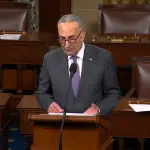The New York Times has stepped up to bat for President Biden once again, this time launching an animated defense against any discussion of the president’s apparent decline. Videos circulating online have raised eyebrows, but for the paper, they are simply “cheap fakes.” Apparently, in the eyes of the Times, reality itself is now open to interpretation, much like a poorly scripted drama.
It’s comical how the narrative is being spun: any video or piece of evidence that seems to suggest Biden is not operating at peak capacity is immediately classified as misinformation. Trying to make the case that such footage is doctored feels less like serious journalism and more like an episode of a bad sitcom, where the writers are clearly out of touch with their audience. Their portrayal of Biden as the picture of health and competence flies in the face of what even casual observers have noticed.
In a world where fact-checkers are a dime a dozen, it’s perplexing to see a major outlet take such an overtly protective stance over the commander-in-chief. Given Biden’s history of verbal gaffes and moments that make even the most devoted Democrat squirm, it seems like The Times is trying to blindside Americans from uncomfortable truths. Are they suggesting that the 170-plus times Biden has confused his own administration with a children’s puppet show should just be laughed off? Many conservative commentators would argue that a little healthy skepticism should be standard fare, especially when examining the state of a president’s mental acuity.
The week in whoppers: NY Times changes its tune on Biden, Washington Post slams Trump in push ‘poll’ and more https://t.co/lhutSpKiOt pic.twitter.com/NGSHrokmUr
— NY Post Opinion (@NYPostOpinion) December 19, 2024
One has to wonder what the editors at The Times truly believe their readers are capable of processing. Do they think that dismissing evidence as “cheap fakes” is the height of journalistic prowess? The irony is rich, especially as mainstream media outlets continually hold their noses high at conspiracies that turn out to be less far-fetched than their own narratives. It’s as if they are covering their eyes and chanting, hoping the alarming visuals will simply disappear.
In an age when authenticity and accountability are demanded of public figures, the defense of Biden looks more like a strategy born out of desperation. Protecting the narrative at all costs might satisfy some faction of the Democrat base, but it leaves the average American wondering what is real in the world of politics. As individuals continue to consume information, the adherence to facts over fiction might ultimately serve them better than blind loyalty to a failing regime. So while The Times insists the videos are bogus, the American people remain armed with their own eyes and ears, ready to judge for themselves.




